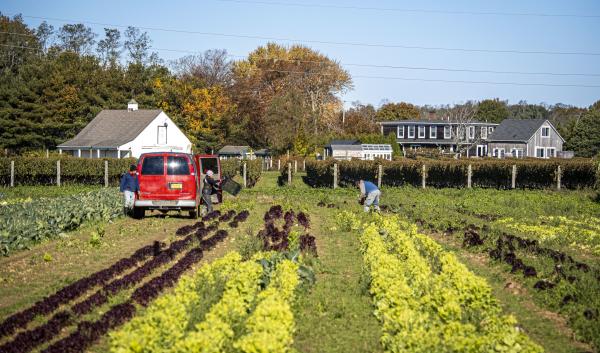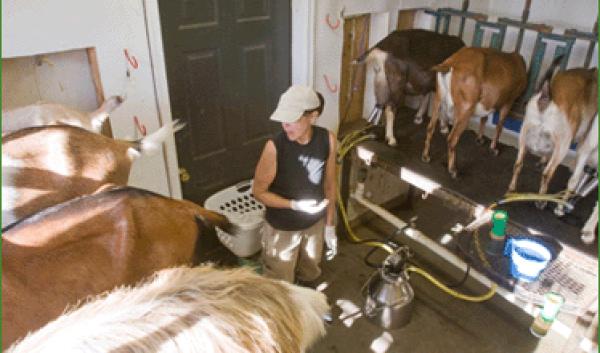Study of on-farm decision making in an era of climate change
Climate forecasts suggest farmers in the Northeast will be faced with both challenges and opportunities. Currently, farmers and other land stewards manage the risks created by changeable weather patterns in many different ways. How will they respond to climate change? To learn more, 15 farmers from Vermont were interviewed in 2013-2014. Interviews took place 2 years after Tropical Storm Irene damaged many farms in the State. The findings show that the local nature of climate impacts affect decisions and how farmers approach on–farm risk management.
In this study, Vermont farmers identified many site-specific risks that they associate with extreme weather and climate change. From their standpoint, these risks are not new. Rather, they represent familiar risks that are being intensified by recent climate changes. Dr. Rachel Schattman found that farmers consider both vulnerabilities and opportunities when deciding how to manage their farms. What each farmer perceived as the greatest risks was influenced by their individual situation. The specific climate-related risks that farmers in this study talked about were grouped into two broad categories: ecological and economic. Some concerns spanned both categories.
Research brie
What kinds of climate-related risk are Vermont farmers worried about?
| Ecological risk | Economic risk |
| Farmers voiced their concern about how future extreme weather would affect their land, mostly in areas prone to flooding or erosion. They were especially concerned with the potential for extreme rainfall events during critical farming periods. Heavy rain in early-spring and late-fall could limit their ability to produce salable goods. Other concerns focused on whether or not they should plant crops in locations that were subject to flooding, and the risks posed by pest outbreaks. When planning long-term changes to land management, farmers ultimately sought to balance trade-offs between different kinds of risks. | Farmers were worried about both short-term and long-term economic risks. Their main concerns included: (a) market volatility, (b) crop failure, (c) insecure land tenure, and (d) financial stress from adapting to climate change. Because household income is tied to their farm income, farmers expressed concern that their financial well-being is also at risk from extreme weather. Most reported major financial losses due to Tropical Storm Irene, which occurred two years before these interviews. |
How do Vermont farmers address climate-related risk?
Farmers in Vermont are actively adapting to changing weather patterns. Many are using well known conservation practices. However, uncertainty about timing and severity of extreme weather events limits planning. As a result, many farmers reported that they did not know how to best prepare for climate change. Personal experiences with extreme weather, such as Tropical Storm Irene, did influence their decisions. Farmers who endured damage during past extreme weather were more likely to adopt proactive strategies. The climate risk management strategies reported by the farmers in this study include:
-
Strategically selecting planting sites and locations
-
Purchasing or leasing extra land
-
Building soil health
-
Changing crop timing, selection and location
-
Selling through local markets
-
Using direct subscription based customer relationships, like Community Supported Agriculture (CSA)
-
Diversifying to new products and markets
-
Implementing protective lease agreements
-
Securing off-farm income
Research implications
Results show that planning for climate risks on farms is built on personal experiences farmers had with extreme weather, especially flooding. Programs and policies that combine these findings with forecasting can help farmers prepare for and adapt to these risks. Having farmers in the Northeast share ways they are adapting to climate change can also help others who want to begin addressing climate risks on their own farms.




